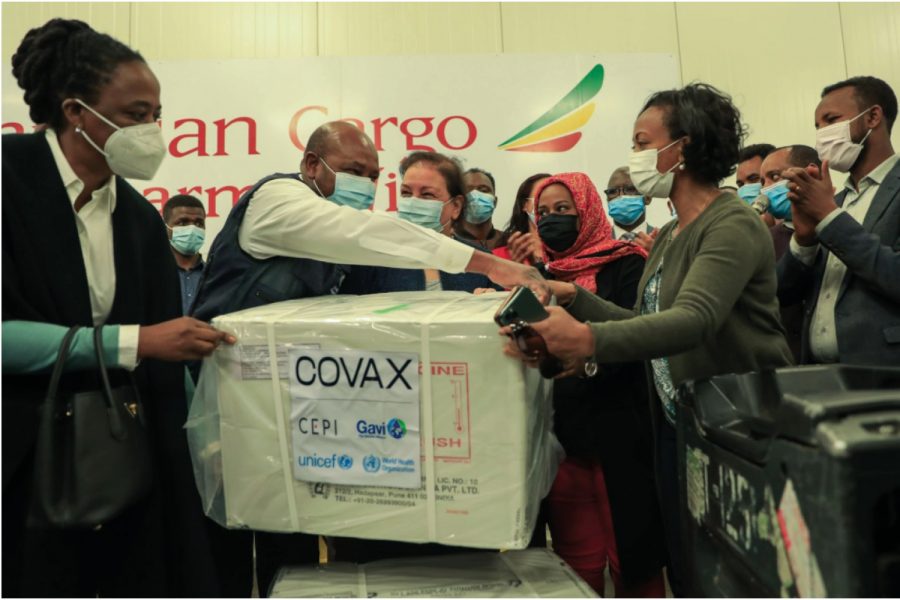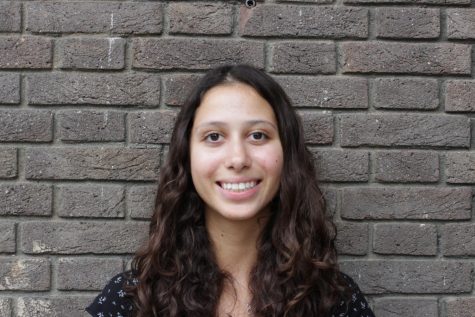currently hold 4.2 billion doses of vaccines, while low-income countries carry fewer than 670 million doses, per the .��
Social Studies Teacher Becky Mason said COVID-19 has further exposed wealth disparity around the world through vaccine efforts.��
“There is so much inequity that has become made really apparent by this pandemic that this is just one more of all the other [inequities] that seem to be there,” she said.��
However the World Health Organization has started a global health initiative COVAX which extends and supplies COVID-19 vaccines to low-income countries. According to the website, the program’s goal is to ensure an equitable supply of vaccines around the world; it plans to deliver at least 2 billion doses to 190 countries in less than one year.��
Furthermore, according to the , COVAX aims to supply enough shots to vaccinate 20% of the population in each participating country by the end of 2021. Most of the countries are centered in Africa, Asia and Latin America.��
Ellie Mankarious (’21) said because low-income countries already handle a surplus of other problems, it is crucial that high-income countries offer support.
“These developed countries that have billions and billions of dollars and can’t even solve the problems for their own people, so go to a war-torn country or a country that is in a humanitarian crisis, there’s no way that they’re going to be able to fund or prioritize COVID-19 and vaccine distribution when they have bigger problems to deal with,” she said.
In addition, Darren Morris (’23) said COVAX is imperative as it allows fair access to vaccines.��
“It’s really, really good that there’s programs like COVAX out there that are trying to level the playing field so that people in middle and lower-income countries have just as much opportunity to be vaccinated as higher-income countries,” he said.��
Knowing the wealth disparity between the developed countries and the less-developing countries, I just can’t help thinking that they should definitely be doing more,
— Ellie Mankarious ('21)
, the COVAX program is co-led by the WHO, the Global Vaccine Alliance and the Coalition for Epidemic Preparedness Innovations. The program is also partnered with Unicef, which helps deliver the vaccines.��
Moreover, both the U.K. and the U.S. governments have contributed to COVAX, per . The Feb. 12 and will provide the remaining $2 billion over the course of the next two years as other nations also fulfil their pledges. The U.K. government has already provided $734 million in aid.��
Mason said the distribution of COVAX vaccines is complicated as it poses various questions to the validity of the solution.��
“It’s such a multifaceted issue because I can’t think of a solution beyond money, even though money doesn’t necessarily fix the actual problem,” she said. “Instead of solely donating money, they can help with how the manufacturing plants are going to actually produce and deliver the vaccines.”
Furthermore, Mankarious said while she appreciates the U.S. and the U.K. are helping developing countries, they could be doing more.
“Knowing the wealth disparity between the developed countries and the less-developing countries, I just can’t help thinking that they should definitely be doing more,” she said.
Although COVAX has support, it remains underfunded. According to the , the program has raised $6 billion to this point. However, it needs at least another $2 billion in order to meet its target goal by the end of 2021.��
It really exposed and shows the massive gaps between developing and developed nations and also the inequality, in a sense, around the world,
— Santiago Londono ('23)
Mankarious said she is not shocked to hear COVAX is at risk of not meeting its goals.��
“During times of stability, we like to think – and obviously this is a generalization – but we like to think that we … put so much money and all funding towards helping them but the reality is shown during times of instability,” she said.
According to the , the WHO states that putting an end to COVID-19 requires 70% of the world population to be vaccinated. At a distribution rate of 2 billion doses per year, it could take at least two years to vaccinate 70% of the world’s estimated 7.8 billion people.��


is one example of COVAX’s initiative to provide equal access to vaccines. In early March, Columbia was the first country in the Americas to receive aid through the program, receiving around 117,000 of the Pfizer/BioNTech vaccine, per the . With 2.31 million cases and over 60,000 deaths in Colombia, President Iván Duque the nation is in desperate need of a productive vaccination program.��
Colombia expects to receive an additional 20 million doses of the vaccine through COVAX by the end of 2021, per the . Duque said he hopes to start vaccinating healthcare workers and the elderly.��
Santiago Londono (’21), who is from Colombia, said it is crucial to supply less developed countries with resources since many hospitals and programs are generally underfunded.��
“There’s a lot of areas in Colombia where there’s not a lot of access to even basic things, like medicine and all those basic needs,” he said. “Now with COVID around, I think it’s great having a program to help areas like Colombia that don’t have as much access to vaccines.”
Londono also said his relatives were heavily impacted by the pandemic.��
“I have grandparents in Colombia and COVID was quite bad there so they had to leave the city to stay in their house in the mountains, just because it’s a lot safer,” he said. “The medical care in the cities where my grandparents live is very underdeveloped, so that was especially a main concern.”
Moreover, Londono said while his grandparents are still waiting for their COVAX doses, his parents, who live in the U.K., have already received theirs. To him, this “shocking” disparity evidences a deeper global issue.
“It really exposed and shows the massive gaps between developing and developed nations and also the inequality, in a sense, around the world,” he said.






